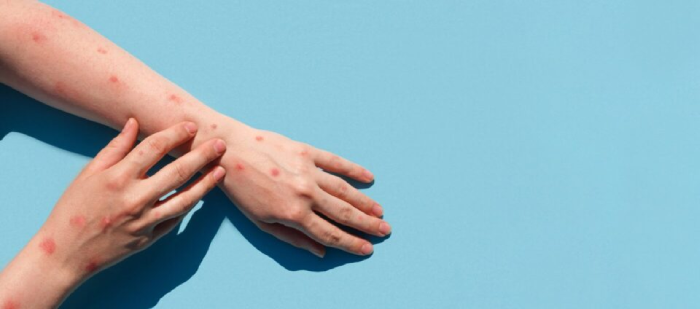
A 48-year-old British national living in Singapore was confirmed on July 13 to be the second case of monkeypox bringing the total number of infections linked to the outbreak to five in the city-state, according to the Singapore’s Ministry of Health (MOH) website.
Five cases (all male) included other local cases and three imported cases.
The Ministry of Health added that there have been no further cases and that contact tracing is ongoing. The man went to hospital on Wednesday after developing a rash around his anus on July 6 and a fever on July 11.
He was admitted to the National Centre for Infectious Diseases (NCID) that day and tested positive for monkey head. The man is now admitted and his condition is stable.
According to the latest update from the World Health Organisation (WHO), there are currently more than 6,000 cases of monkeypox in 59 countries and regions.
The UN agency will convene another committee meeting on or before July 18 to recommend declaring the outbreak a global health emergency (WHO’s highest alert level), according to General Tedros Adhanom Ghebreyesus in a virtual news report on Wednesday.
Monkeypox: unlikely to be COVID 2.0
Monkeypox, a common mild viral infection that causes flu-like symptoms and skin lesions, has been spreading around the world since May.
The mortality rate from previous outbreaks of the current monkeypox epidemic was about 1%. People usually recover in 2-4 weeks, but a small number of infected people become seriously ill or even die.
People who are especially vulnerable to complications include young children, pregnant women, or people with weakened immune systems.
Because transmission requires close physical contact or prolonged contact, the risk to the general public is still low.For this reason, Health Minister Ong Ye-kung said in a written reply to Parliament on July 4 that monkey-doo is unlikely to turn into a global pandemic like COVID-19.
“Unlike COVID-19 vaccination, mass population-wide vaccination with the smallpox vaccine is not recommended as a preventive strategy for monkeypox, in line with international recommendations and the global response thus far,” Ong wrote.
Although the monkeypox vaccine is up to 85 percent effective in preventing mumps, there are potential side effects, Ong said. Because the risk of infection is low for the general population, the risk of complications outweighs the benefits, he added.
NHS ramps up vaccination
Meanwhile, the NHS has ramped up its vaccination campaign against monkeypox as more than 2,000 cases have already been confirmed, with most cases concentrated around London.
Steve Russell, NHS director of vaccinations, said: “While the risk of monkeypox remains very low and nearly every case we have seen so far has recovered quickly, over 2,000 people have been affected by the virus.”
Monkeypox can be spread from person to person in the following ways:
Touching the clothes, bedding or towels used by a person with a monkey head
Touching blisters or skin crusts on the monkey’s head (including during intercourse)
Coughing or sneezing on someone with a monkeypox rash.
In London, more cases have been reported than anywhere else in the country, and the city is implementing booster immunizations to prevent further spread of monkeypox.
NHS England said thousands of eligible people in the capital would be contacted about vaccinations as the scheme expands and more vaccines become available.







